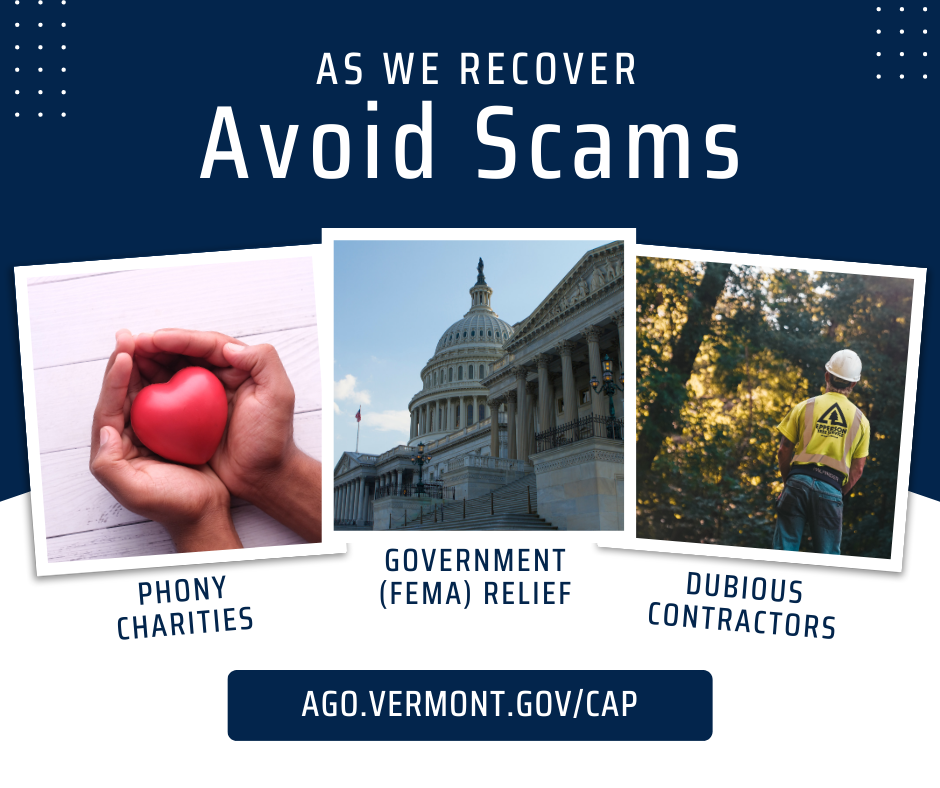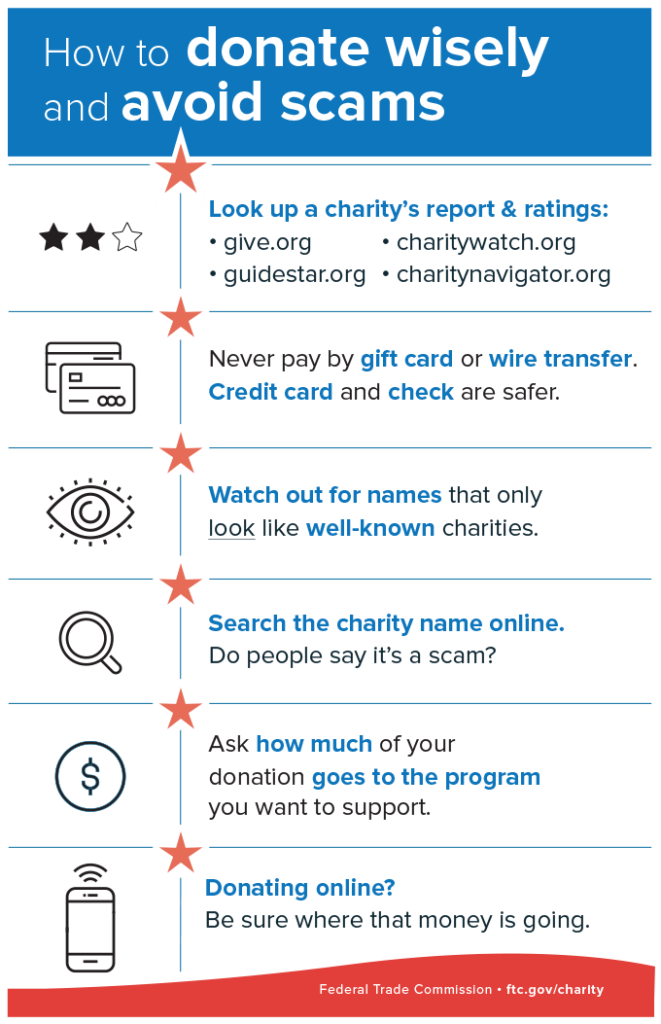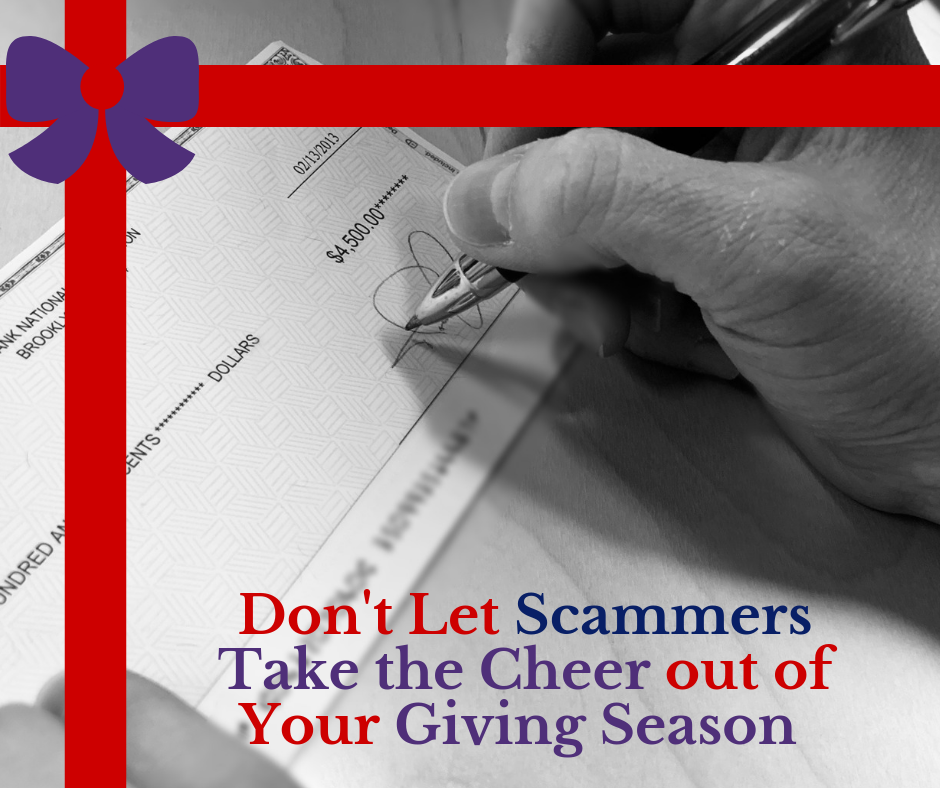Due to the extreme rainfall and flooding across the state, the White House issued a state of emergency for Vermont, which authorizes FEMA to support impacted Vermont counties in recovery efforts. Unfortunately, scammers take advantage of people’s heightened emotional state following disasters, and the Vermont Consumer Assistance Program wants you to be aware of targeted disaster relief scams to avoid while our communities recover from the flooding.

Government imposter relief scams may claim to be FEMA or the State of Vermont. FEMA scams manifest as fraudulent inspectors that request fees for service, or administrative personnel that call to “verify” your information but are phishing for your personal information. Such relief help scams may even claim they can speed up your FEMA relief application for a fee.
Avoid this scam: Connect with FEMA directly online: https://www.fema.gov/disaster/3595 and continue to follow updates from the Vermont’s congressional delegation, the Governor and Vermont Emergency Management.
Phony charities that solicit funds claiming to support recovery efforts. The Vermont way is to help our neighbors. We all want to help, whether it is through volunteering or donating money. Sadly, scammers use the same contact methods as legitimate charities (phone, online, mail).
Avoid this scam: Please only give to valid charities that you have thoroughly researched and vetted. Use tools like the Better Business Bureau’s Wise Giving Alliance and Charity Navigator to research charities before you donate.
Dubious contractors may appear with promises to restore damages immediately in exchange for immediate payment. Such contractors urge you to act fast, may offer lower prices, and do not have credentials—though they might say they are “registered and insured,” these are unverified statements.
Avoid this scam: Vermonters must be extra critical about hiring home improvement contractors. Never pay in full upfront for a home improvement project. Make sure you have a contract. Check residential contractor registration status with the VT Office of Professional Regulation in the Secretary of State.
Please watch out for these scams and report businesses that set unconscionable price hikes on essential items, like bottled water. If you experience this practice, please report instances of price gouging to the Consumer Assistance Program by phone at 800-649-2424 or online at ago.vermont.gov/cap
More: The Vermont Attorney General’s Office flood resources page: https://ago.vermont.gov/flood-resources and the Federal Trade Commission on spotting and avoiding post-disaster scams: https://consumer.ftc.gov/consumer-alerts/2023/07/how-spot-and-avoid-post-disaster-scams-northeast


 As a little girl, I fondly remember watching my dad open scores of charitable solicitations, some containing gifts of greeting cards or address labels, others with a simple request to help their cause. This giving season, I am now the one who opens the mail with thoughtful poise and consideration, “Which causes should I support this year?” In this time of giving, many of you may be asking the same question. To help you decide, I’ve outlined the steps that I take before giving:
As a little girl, I fondly remember watching my dad open scores of charitable solicitations, some containing gifts of greeting cards or address labels, others with a simple request to help their cause. This giving season, I am now the one who opens the mail with thoughtful poise and consideration, “Which causes should I support this year?” In this time of giving, many of you may be asking the same question. To help you decide, I’ve outlined the steps that I take before giving: